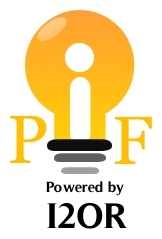Effect of Mastery Learning Strategy on Junior Secondary School Students' Academic Achievement in Basic Technology in Edo State, Nigeria |
| ( Volume 4 Issue 3,March 2018 ) OPEN ACCESS |
| Author(s): |
ISERAMEIYA F. E., Prof. IBENEME O. T. |
| Abstract: |
|
The need to enhance academic achievement of students in Basic Technology in Edo State necessitated this study; it focused on the effect of mastery learning strategy on academic achievement of Junior Secondary School Two (JSSII) students’ in Basic Technology (BTE). Four research questions guided the study and two null hypotheses formulated were tested at 0.05 level of significance. Quasi-Experimental design was adopted. Specifically, Solomon Four non equivalent group design model was used. The population was 3,170 (1,675 male & 1,495 female) JSS II students from 25 schools in Edo Central Edo State. A sample size of 119 (66 male, 53 female) JSS11 students from two selected mixed schools participated in this study. Stratified sampling technique was used. A 50-item multiple choice Basic Technology Achievement Test (BTEAT) was used for both the pre-test and post-test. The instrument was face and content validated before administration. Test – retest method was used to establish the reliability of the instrument. Pearson product moment correlation coefficient was used to correlate the two results and a reliability index of 0.85 was obtained. Experimental group E1 and control group C1 received pre-test before commencement of the treatment, post-test was administered to all the groups. Data collected were analyzed with descriptive and inferential statistics (mean, mean difference t-test and Analysis of Covariance (ANCOVA). It was found out that students taught BTE using MLS differ significantly in their post-test academic achievement compared to those taught using DIS. Students taught BTE with MLS exposed to pre-test performed relatively higher in their post-test academic achievement than those exposed to post test only. Also, there was a significant interaction effect between MLS and students academic achievement in BTE. Furthermore, there was a significant interaction effect between pre-testing and instructional strategy (MLS) on students’ academic achievement in BTE. Based on the findings, it was concluded that MLS is an effective instructional strategy that significantly enhances students’ academic achievement, irrespective of the subjects. Therefore, the use of MLS is recommended, and this may require developing teachers’ capacity for effective administration. |
| Paper Statistics: |
| Cite this Article: |
| Click here to get all Styles of Citation using DOI of the article. |
 Click Here for
Click Here for Track Your Paper

 Call for Paper
Call for Paper
